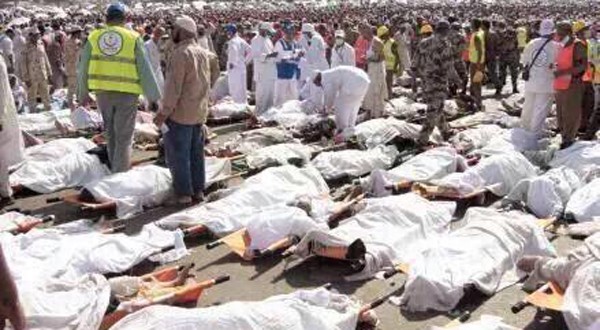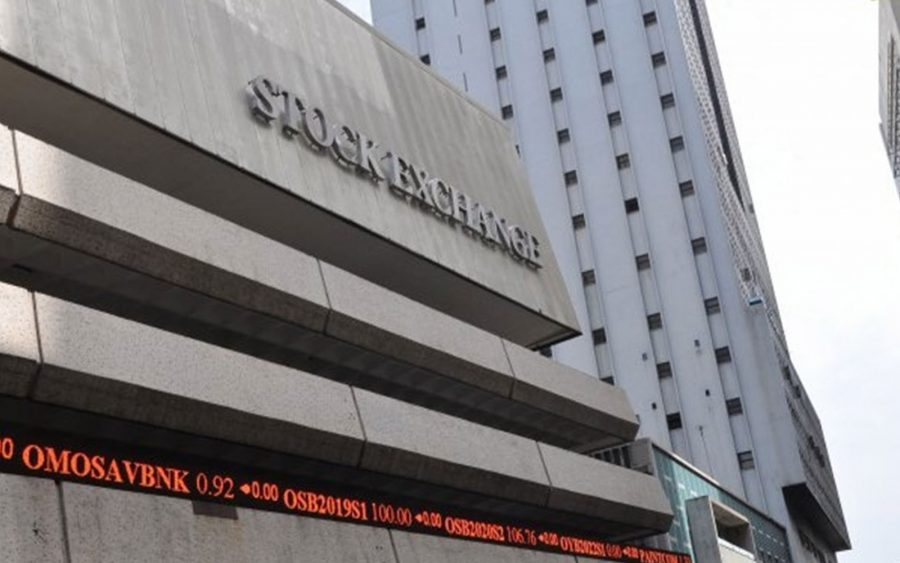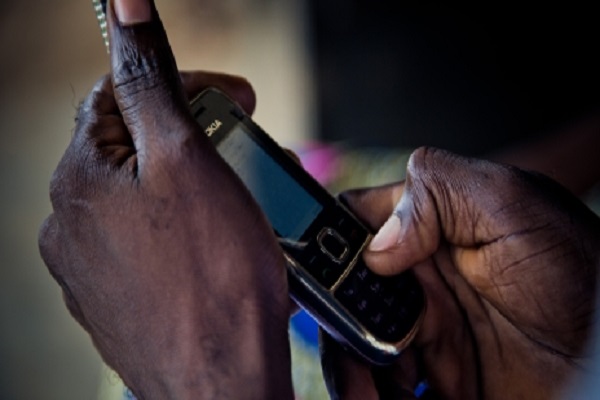Pilgrims reported feeling the hands of their relatives slip away into the crowd on Thursday morning when a crush at the Mina camp in Mecca killed at least 769 in the deadliest haj disaster in a generation.
Saudi Arabia has spent billions of dollars on making the world’s biggest gathering of people safe. For nine years, there had been no major disasters at the haj, a much lauded success after a period from 1990-2006 when crowd crushes and fires that killed hundreds of people took place every 2-3 years.
But Thursday morning’s crush – as millions of people tried to reach three walls to pelt them with stones in a ritual intended to drive out Satan – proved that those preparations were inadequate for the world’s greatest crowd control challenge.
“There was no way out. You saw parents leaving their children and the elderly to survive,” said a Nigerian survivor, Dahiru Shittu Ibrahim, 37.
Saudi Arabia’s management of the annual pilgrimage has been a divisive issue in parts of the Muslim world for decades as the haj has grown in scale and danger.
Last week’s deaths have brought accusations of culpability, especially from Saudi Arabia’s regional rival Iran. Iranian television has played video it says shows a motorcade blocking streets as it travelled through Mina that morning. Critics of the Saudi government say the disaster may have been caused by authorities halting crowds to make way for a VIP.
Saudi Arabia strongly denies this and disputes the veracity of the footage. Interior Ministry spokesman Major General Mansour Turki said police do not close the main pilgrimage routes and no vehicles had passed in areas near the crush any time after early Thursday morning.
Witnesses have described police closing off roads, although they are not able to say why. Closing routes in one location is a standard measure to control crowds building up elsewhere.
Saudi officials have suggested that the crush may have been caused by crowds failing to stick to the complicated schedules laid out by its government to control the movement of millions of people across the site.
An official inquiry into the disaster announced by King Salman is to be carried out by Saudi officials alone.
But whatever the immediate cause of the bottleneck, it appears to have taken place at a location not previously identified as a major choke point, suggesting that the Saudi authorities underestimated the work needed to make the haj safe.
STONING THE DEVIL
After dawn prayers on Thursday the pilgrims set off for Mina and departed in groups throughout the day to “stone the devil” at the walls.
At 9:00 a.m. there was a crush of crowds at the northwest corner of the tent city, where roads leading toward the Jamarat converge. Thousands of pilgrims met at the intersection of two streets, numbered 204 and 223.
Witnesses reported seeing security personnel block off a road leading to the Jamarat, then being overwhelmed by waves of people continuing to press forward from within the camp. Others said they were caught between groups of pilgrims moving in opposite directions.
“The police started shouting at us ‘stop, stop’. They had made a human chain, blocked the main route and didn’t allow pilgrims beyond that point,” said Shahid Ali, 50, from Pakistan.
Others reported seeing luggage in the street, which may have caused people to trip and the crowd to press in.
A Nigerian provincial governor caught in the crush, Alh Samalia Dabai Yombe, said that he saw Saudi soldiers and military vehicles create a barrier along one of the routes, blocking his group from passing.
Behind him, thousands of people continued to press forward, unaware of the blockage. In heat of 47 degrees Celsius (116 Fahrenheit), he said, people begin to collapse. “Pilgrims were like sardines,” he said. “We had to jump on dead bodies to get to a relatively safe place.”
The authorities appear not have regarded the intersection, where a main through-route met a sidestreet, as a danger spot.
Street 223 was not monitored by cameras provided by CrowdVision, a British company that provides analytics technology to help the Saudi authorities reduce the risk of crowd accidents in haj locations, it said in an email.
Turki, the Saudi Interior Ministry spokesman, said the area was not closely monitored because it is an internal camp street, rather than a main through-route taking traffic from Muzdalifa to Jamarat. He believed it was nevertheless partially covered by cameras on parallel roads.
CROWD CONTROL
The haj is overseen by its own ministry within the Saudi government, with a department known as Mutawwif that provides guides and other services for pilgrims. Mutawwif staff work with police to schedule the movements of huge crowds, with timetables posted around the camp at Mina in six languages.
If a delay occurs elsewhere, the police tell the Mutawwif, who are then responsible for rescheduling movements.
Saudi Arabia’s Health Minister Khalid al-Falih suggested that the disaster was caused by a failure to stick to the schedule.
“Some pilgrims moved without following instructions,” he said.
One African pilgrim, who did not want to be identified because he was still in Saudi Arabia, said he was with a large group heading towards the Jamarat through Mina on a street that divided into two and then later joined up again.
“We were surprised to see a large number of camp residents moving in the direction opposite to those who had just thrown stones at Jamarat, wanting to take a short cut,” he said, adding that soon afterwards “all bodies meshed into each other”.
Somewhere in the crowd were the Pakistani parents of 22-year-old Muhammad Umar Arif from Lahore.
“My mother was holding my father’s hand, but then the hand slipped. And when she turned to look, he had fallen,” he said.
You can just imagine what she must have thought at that time, when she saw her lifelong companion lose his life.”






![[The Nigerian Economy Daily] FG has approved the closure of five foreign missions and embassies](https://nairametrics.com/wp-content/uploads/2017/05/nigerian-economy-today-1.jpg)










